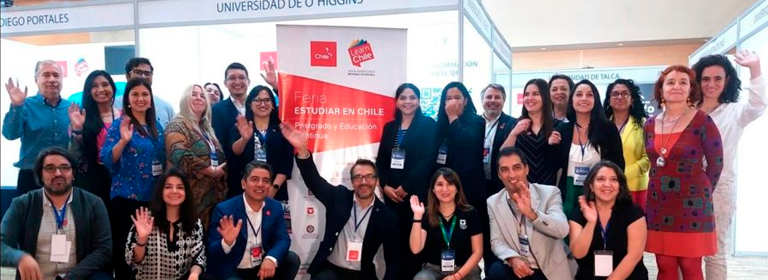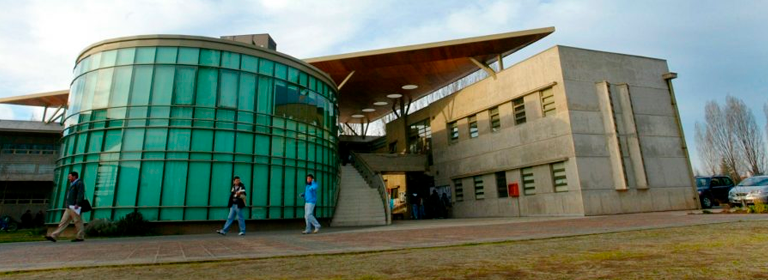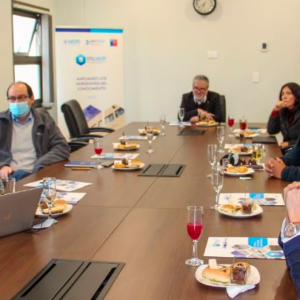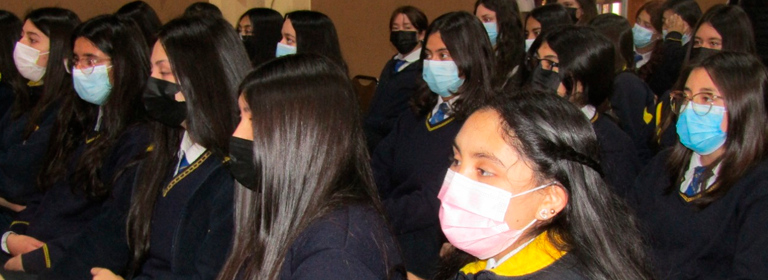Dr. Rodrigo Dias de Oliveira gave a talk on microbiota and health at the opening of the new academic year for the Translational Biotechnology program.
 With a talk on microbiota and health, the Catholic University of Maule (UCM) inaugurated the academic year of one of its most important doctoral programs. The Translational Biotechnology program, taught by the university’s Faculty of Agricultural and Forestry Sciences, began a new academic year, marking an unprecedented effort in Chile.
With a talk on microbiota and health, the Catholic University of Maule (UCM) inaugurated the academic year of one of its most important doctoral programs. The Translational Biotechnology program, taught by the university’s Faculty of Agricultural and Forestry Sciences, began a new academic year, marking an unprecedented effort in Chile.
The presentation, given by Dr. Rodrigo Dias de Oliveira, an academic from the Federal University of Minas Gerais in Brazil, addressed the benefits of bioinformatics for analyzing large amounts of biological data, such as DNA and protein sequences, through a combination of biology, computer science, mathematics, and statistics.
“We have isolated potential immunobiotics,” said the expert, “and are able to characterize new bacterial strains with anti-inflammatory potential that can be used for clinical treatment. We have tested this in mice with intestinal inflammation; we are now conducting clinical trials.”
Dias de Oliveira has experience in genetics, microbiology, and molecular biology and has worked mainly on the development of new biotechnological and therapeutic applications of bacteria, with an emphasis on genomic data from the intestinal microbiota. “This is my first time in Chile; I think it’s great. The university has a good structure,” he said.
Accredited by the CNA until 2026, the Doctorate in Translational Biotechnology seeks to generate scientific knowledge that can be applied to specific problems. It is a novel program, taught in person.
“For us, the field of medicine is fundamental. The main achievements of biotechnology worldwide have been in the medical field, and the translational strategy is precisely what we are seeing here: how to do research in the hospital,” said the program director, Dr. Ariel Arencibia.
Hospitals as protagonists
Renato Anfossi, head of the Research Unit at Dr. Franco Ravera Zunino Hospital in Rancagua, also participated as a speaker at the event, offering a management model for scientific studies and innovation.
«According to Harvard Medical School, hospitals that conduct research have lower mortality rates than those that do not, with the average ranging from 5 to 20 percent, depending on the cause of mortality. In addition, a British study showed that the active participation of hospitals in research allows for better transfer of information from clinical staff to patients, who understand their pathologies, medications, and treatments much better,» he said.
A similar opinion was expressed by Dr. Vivian D’Afonseca, an academic at the UCM School of Medicine and a member of the doctoral faculty. “I am very enthusiastic about the fact that research is being carried out within hospitals, because ultimately this is a very important factor in the development and improvement of healthcare services. As a doctoral program, this is what we want: for the research generated here to reach, for example, patients, the environment, or the agricultural world,” she emphasized.













